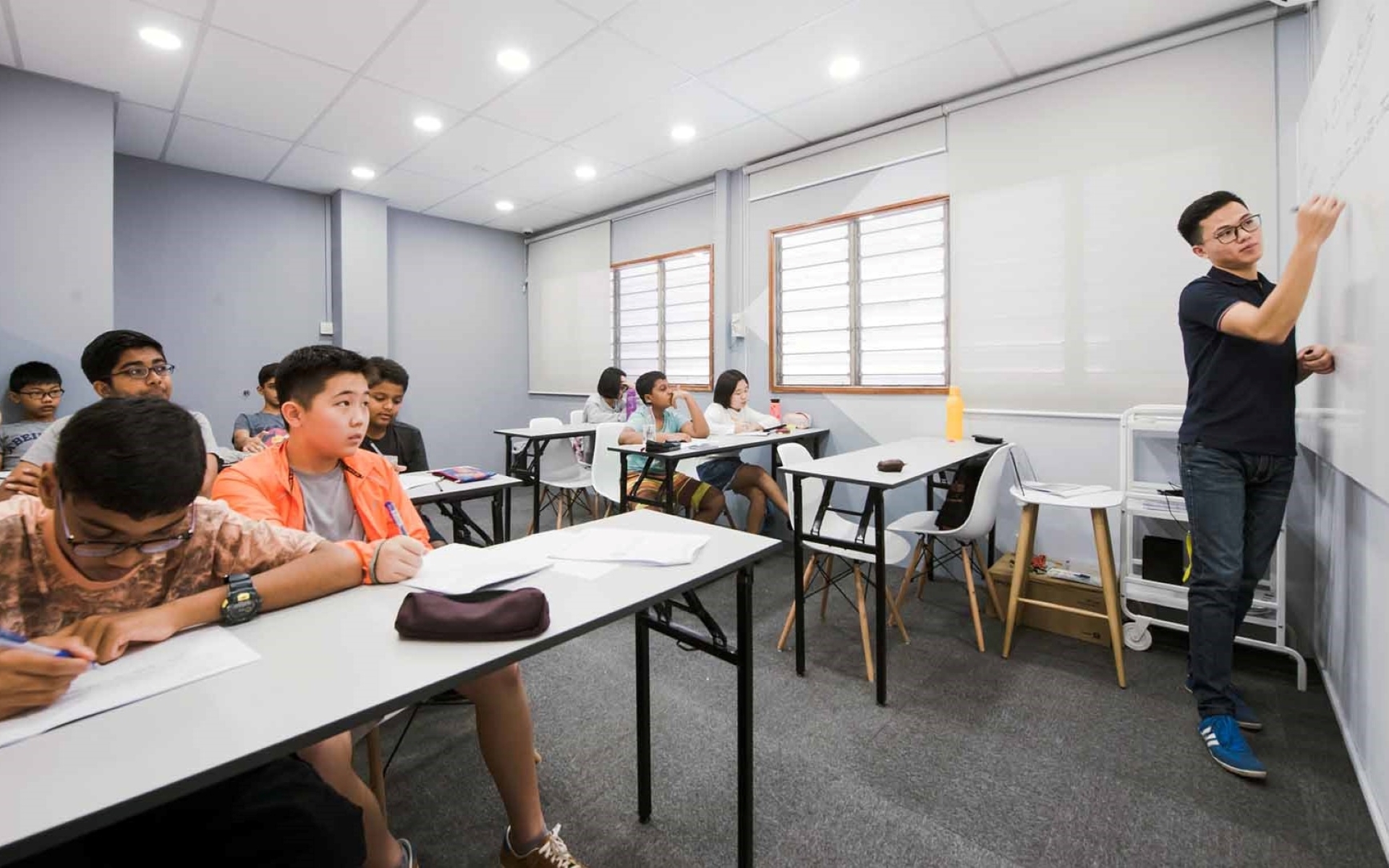The Direct School Admission (DSA) scheme is a cornerstone of Singapore’s efforts to build a more holistic education system. It offers Primary 6 students early entry into secondary schools based not only on PSLE scores, but also on their strengths in areas such as sports, leadership, the arts, or academic excellence.
This initiative reflects a broader shift towards recognising diverse talents and nurturing personal growth. As Education Minister Chan Chun Sing has emphasised, education in Singapore must evolve beyond grades. Schools should help students discover where their passions lie and support them in becoming confident, well-rounded individuals.
The DSA system reinforces this vision. It provides an opportunity for students to pursue their strengths, build resilience, and find schools that align with their goals—not simply chase prestige. However, the journey isn’t without its challenges. From complex selection processes to emotional stress, families must navigate several hurdles. This guide outlines these common challenges of applying for Direct School Admission in Singapore and offers strategies used by successful applicants to overcome them.
Understanding the DSA Process
The DSA process can feel overwhelming, particularly for families experiencing it for the first time. Every participating school sets its own selection criteria, which may include interviews, auditions, portfolio reviews, or written tests. Unlike the standard PSLE route, DSA evaluates students in a more holistic manner, looking at not only talent but also character and commitment.
Start Early and Use Reliable Resources
A good first step is to visit the MOE website and DSA-Sec portal. These platforms contain up-to-date application deadlines, school-specific requirements, and FAQs to guide parents and students through the process. It is also highly recommended to attend open houses. These provide a clearer picture of school culture, expectations, and the kinds of students they are looking for. Families who prepare early tend to approach DSA with more confidence and less last-minute stress.
Facing Common DSA Challenges
DSA offers meaningful benefits—but navigating it can be difficult without the right approach. Here are four major challenges families frequently encounter.
Challenge 1: Intense Competition for Limited Places
DSA is highly competitive. Many top schools receive hundreds of applications for just a few openings. Even students with excellent track records in their respective talent areas are not guaranteed admission. The pressure to stand out among equally qualified peers can be immense.
Rather than focusing solely on elite schools, successful families often apply to schools that truly match their child’s strengths and personality. They identify programmes where the child can shine—not just compete. This approach not only improves chances of selection but often leads to a more positive school experience long-term.
Challenge 2: Managing Interviews, Auditions, and Portfolios
The selection process can be daunting. Students may be asked to perform live in front of a panel, solve problem-based tasks, or explain their motivation for applying—all under pressure. These exercises are meant to assess more than skill; they also gauge communication, confidence, and fit with the school.
Students who do well in these assessments are typically those who have had time to practise and refine their presentation. Parents and educators can help by organising mock interviews, reviewing sample questions, or providing opportunities for students to speak about their passions confidently. A strong portfolio—containing evidence like certificates, videos, and teacher endorsements—can further reinforce the student’s abilities.
Challenge 3: Balancing DSA Commitments with PSLE Preparation
Preparing for DSA often requires additional coaching, rehearsals, or competition involvement—all while students are also revising for the PSLE. This dual demand can lead to exhaustion or anxiety if not managed properly.
Families that successfully navigate this tension usually build structured routines that accommodate both academic study and talent development. They also prioritise well-being, ensuring their child gets enough rest and downtime. If needed, short-term coaching or enrichment classes can help the child strengthen weaker areas without overwhelming their schedule.
Challenge 4: Emotional Pressure and Uncertainty
The emotional toll of DSA should not be underestimated. Students may worry about rejection, struggle with performance anxiety, or compare themselves to others. For parents, it can be difficult to know how much to push or when to pull back.
Open communication is key. Parents should encourage children to express their concerns and focus on effort over outcome. Reinforcing that DSA is one of many possible paths—not the only measure of success—helps students manage expectations and bounce back from disappointment if needed.
How Successful Applicants Overcame These Challenges
While every journey is different, students who succeed in the DSA process tend to follow a few key strategies—and receive the right support along the way.
Early Preparation Builds Confidence
Many successful applicants begin preparing several months ahead of time. This allows them to deepen their skills, build a compelling portfolio, and familiarise themselves with selection formats. With more time to practise and reflect, they enter interviews and trials with greater self-assurance.
Mentorship and Guidance Make a Difference
Support from teachers, CCA coaches, or academic tutors often plays a pivotal role. Mentors can help refine a student’s portfolio, conduct mock interviews, and offer feedback tailored to the school’s focus. Even subtle suggestions—like how to phrase a response or present an achievement—can strengthen an application.
Strategic School Selection Improves Fit
Rather than chasing the most popular schools, successful applicants tend to shortlist schools where their strengths are valued. They explore programme details, review past admission criteria, and choose schools that align with their learning style and goals. This not only increases their chances of success but also ensures a better environment for growth.
Family Support Builds Emotional Resilience
Families who create a positive and nurturing environment during the DSA journey help their children cope with stress and uncertainty. Whether the outcome is acceptance or rejection, these students understand that DSA is a learning experience, not a final judgment of their worth.
Learning from Rejection Fuels Growth
Some students don’t succeed on their first try—but they reflect, adapt, and continue developing. They may strengthen their portfolios, seek feedback, or reapply through alternative routes. What sets them apart is their persistence and willingness to improve.
The Broader Benefits of DSA
DSA offers much more than early admission to a good school. For students accepted through the scheme, the benefits often extend well beyond secondary school.
They are given the chance to specialise early in their area of interest, supported by tailored programmes and mentorship. These students also tend to stay more engaged with school life and often go on to pursue related opportunities in junior college, scholarships, or university pathways.
Perhaps more importantly, DSA nurtures skills such as discipline, self-awareness, communication, and leadership—traits that remain valuable well beyond the classroom.
Navigating the DSA-Sec Portal
The DSA-Sec portal is the central platform for submitting applications, selecting schools, and tracking progress. While designed to be accessible, it still requires users to pay close attention to details.
Parents should familiarise themselves with the portal’s features early on, including help guides, explainer videos, and submission timelines. School-specific requirements may differ, so it’s important to prepare documents accordingly and review everything before submission. Common errors—such as incomplete forms or missed deadlines—can be avoided with proper planning.
Choosing the Right School
Choosing the right school goes beyond academic rankings. What matters most is how well a school’s environment supports your child’s development—intellectually, emotionally, and socially.
Parents should review each school’s values, curriculum focus, and DSA track record. Visiting the school, speaking with teachers, and engaging with current students can provide deeper insights. The goal is to find a school that complements your child’s strengths and gives them space to grow, not just academically but also in confidence and character.
Final Thoughts: DSA Is One Path, Not the Only One
The DSA system represents an important evolution in Singapore’s education landscape. It acknowledges that children thrive in different ways—and that success cannot be measured by exam results alone.
Still, DSA is not without its challenges. The process is demanding and outcomes are uncertain. But when approached with thoughtful preparation, realistic expectations, and strong support, it can be a powerful journey of discovery—for both students and families.
At Terry Chew Academy, we believe that students grow not only through performance, but through the process of tackling challenges head-on. Our Olympiad-style mathematics programmes are designed to build strong problem-solving habits, creativity, and resilience—skills that benefit students well beyond the classroom. For those considering academic-based DSA tracks, these foundational strengths can provide an added edge for those considering DSA in Singapore.
Above all, DSA is just one of many paths. Whether your child gains admission through DSA or continues via the traditional route, what truly matters is finding a learning environment that nurtures their potential, supports their passions, and prepares them for the future.

 Like us
Like us



